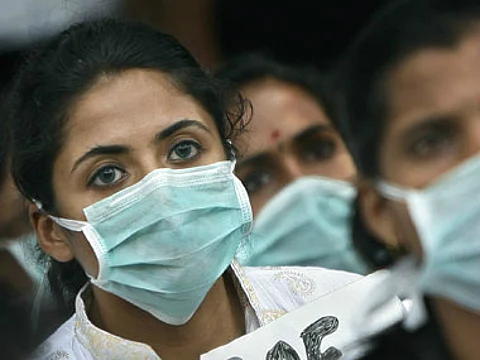

The future of lakhs of students across the country hangs in the balance even as President Pranab Mukherjee has signed the ordinance on NEET, as the move can be challenged in court.
After the Supreme Court’s directive asking the centre to conduct just one exam for the whole country, the government has responded with an ordinance that has been approved by the President. Currently, NEET will not be applicable to the states.
The Centre’s newly promulgated ordinance, which is perceived as a move to bypass the Supreme Court, is expected to be challenged legally in that very court.
Here’s a timeline of the twists and turns that the futures of lakhs of students have taken:
May 24, 2016: President Pranab Mukherjee signs ordinance. Partially overturns the Supreme Court verdict which said all government colleges, deemed universities and private medical colleges will be covered under NEET.
May 23, 2016: President Pranab Mukherjee had sought legal advice and clarifications on NEET. He had also met Union Health Minister JP Nadda.
May 21, 2016: Centre promulgated the ordinance keeping state government colleges out of the ambit of the uniform medical entrance examination for this year.
May 16, 2016: Union Health Minister JP Nadda met health ministers and health secretaries from 18 states/UTs regarding NEET.
May 1, 2016: Over six lakh students appeared for the first phase of NEET.
April 28, 2016: Supreme Court allows NEET to be held in two phases, with the All India Pre-Medical Test considered as first phase. All State-level tests, already held or scheduled, was considered void following the apex court’s verdict.
July 18, 2013: A three-judge bench of Supreme Court struck down the NEET, calling it “illegal” and “unconstitutional” on the ground that it was an interference in the right of the State and private medical colleges to administer entrance tests for medical admissions.
Who said what about NEET:
The petitioner: The Supreme Court’s April 28th order was based on a PIL filed by Mumbai-based NGO Sankalp Charitable Trust to reduce corruption in the admission process. The NGO is expected to challenge the Centre’s ordinance in the Supreme Court, citing that it is “illegal” and an “encroachment on the power of judiciary.”
Central government: The Centre had initially welcomed the Supreme Court verdict but did a U-turn following pressure by states.
Views of the states: States like Maharashtra, Gujarat, Andhra Pradesh, Telangana and Tamil Nadu had wanted NEET to be deferred. They were opposed to NEET on the grounds that 5 states had already conducted their own examination process, the CBSE syllabus was different from State board, giving CBSE students an advantage. States also wanted NEET to be conducted in regional languages in addition to Hindi and English for a level-playing field. Some states are also opposed to NEET as they believed it infringed upon their right to keep education as a state subject.
Seven states that have opted for NEET - Harayana, Himachal, Manipur, MP, Rajasthan, Orissa and Chandigarh. Bihar also opted for NEET